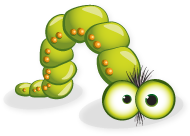~ EMBEDDING THE WORK OF THEORISTS IN OUR PRACTICE ~
Focus: Howard Gardner – The Theory Of Multiple Intelligences
The first theories on child development began to emerge in the 19th century with the publication of the work of Sigmund Freud, who based his theory on work undertaken with patients suffering from mental illness. Soon after, during the 20th century, theorists such as Jean Piaget, Lev Vgotsky, Carl Rogers, Erik Erikson and other notable theorists emerged, each providing a different perspective on human growth, development and learning. To this day, theorists continue to be studied by early childhood educators who use parts of different theories – in context – to support the development of each child.
What’s in it for the children?
By understanding how children grow, learn, develop and change and by understanding the cognitive, emotional, physical, social and educational growth of children, we are best equipped to guide them through their early years from a place of knowledge, appreciation and interaction that will support them in their holistic development.
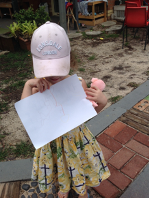
HOWARD GARDNER – a modern day theorist!
Gardner’s Theory of Multiple Intelligences is one of my absolute favourites! Developed in 1983, his theory suggests that the traditional idea of intelligence as one general ability, is far too narrow. Gardner proposed a list of eight different types of intelligence to account for a broad range of human potential in both children and adults. According to Gardner’s Theory, NO intelligence is better than another.
The eight intelligences, published in 1983 are:
- Verbal/linguistic
- Logical mathematical
- Musical
- Visual/spatial
- Body/kinesthetic
- Interpersonal
- Intrapersonal
- Naturalistic (this intelligence was added in 1999, somewhat later than
his initial theory was published).
HOW DOES THIS THEORY INFORM OUR PRACTICE?
How can theory be embedded in our day to day practice and what does this mean for the children in our care? As educators, our role is to nurture children and to honour their individual needs and strengths. Through a cycle of planned experiences and opportunities that foster each type of intelligence and by making these opportunities available to every child, we can open the doors to each child’s strengths. At Eskay Kids, our philosophy emphasises that “We respect and value each child’s unique qualities and abilities” and that “we implement a program where children are at the centre of our practice.”
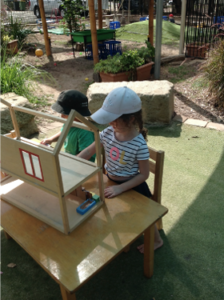
THEORY TO PRACTICE – HOW DOES IT LOOK?
Our team at Eskay Kids Springfield, is “committed to providing opportunities for children
to learn through play, as part of our program.”
Verbal/linguistic:
Some children just love to read, write and speak. We use a rich variety of language experiences each and every day including stories and storytelling, conversations and rhymes, words, letters, signs and book corners as well as crayons and drawing materials. All of these encourage free expression and opportunities for children to develop their linguistic aptitude and interest.
Logical mathematical:
For children who have an interest in, or ability with numbers, reasoning, problem solving and sequential thinking, we develop their strength and interest through puzzles, number games, building with different shapes, blocks and pieces along with patterning and incidental counting. Mathematical experiences and learning can happen anywhere, be it indoors or outdoors.

Musical:
Exposure to music is achieved through experiences of singing, playing melodic and rhythmic instruments, listening to culturally diverse songs and music; chanting rhymes and poems as well as performing fingerplays; instruments and instrument boxes are readily accessible and nature sounds are often an integral part of rest time.
Visual/Spatial:
Multiple art areas are accessible daily with children sculpting with playdough, engaging in collage and painting and drawing with a range of mediums; there is use of 3D manipulatives and visual puzzles as well as gears, mobilo and blocks – all of which are used to visualize and create freely.

Body Kinesthetic:
Some children are good at body actions and physical control; they express emotion through their bodily movements and enjoy physical movement and dance. Both indoor and outdoor spaces provide opportunities for kinesthetic experience and experimentation through climbing, outdoor equipment, hoops, imaginative play, tactile learning (textures). As well as these, mud play, water play, sand play and loose parts all provide opportunities for use of the body in physical ways.
Interpersonal:
Interpersonal strength is demonstrated through relationships with others – it is seen in those children who make friends easily and can empathise and operate well in a group. The opportunities for these children are endless: sharing and playing together; cooking activities; puppet play; getting along; working together to create and discover; explaining and co-operating. These experiences, both incidental and planned, can all develop the child’s strengths in relating to others.
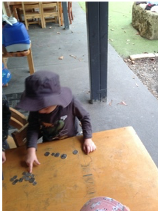
Intrapersonal:
Children with a strong sense of self need places where they can just “be” and play alone; they thrive on “one person” activities and quiet places both indoors and outdoors. The provision of beautiful, safe, warm, welcoming and homely spaces encourage the child to strengthen their sense of self.
Naturalistic:
In tune with nature and the environment, children with naturalistic strengths have an intense interest in the outdoors. The provision of experiences that incorporate plants, searching for and examining “creatures”, nature play and immersion in gardening are all opportunities to develop the child’s interest and understanding of the world around them. At Eskay Kids “we offer children a natural welcoming environment with a focus on nature.”
CONCLUSION:
In our centre, we endeavour to learn everything we can about each child, celebrate and build on their strengths and advocate for them to experience the joy of an authentic childhood. I can’t think of a better way to nurture the children in our care than to provide every opportunity for them to develop their own unique potential through a wide range of experiences making Eskay Kids a special place where children can truly enjoy an authentic childhood.
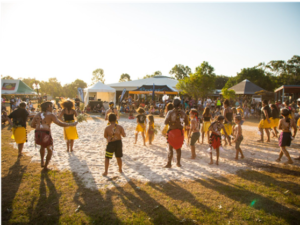
Photo courtesy of blog.queensland.com

